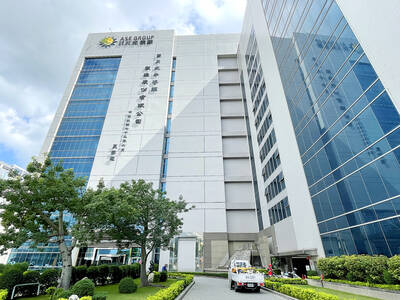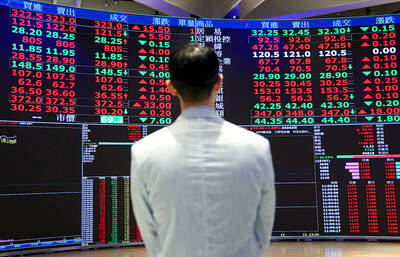The US dollar inched up against the yen in Asia on Friday as Japan's finance minister said that the yen's exchange rate was in line with economic fundamentals.
The dollar rose against the Japanese currency, edging up to ¥121.29 from ¥121.26 late on Thursday.
Comments by Japanese Finance Minister Koji Omi, coming on the heels of the Bank of Japan's decision on Thursday not to raise interest rates, made investors feel even safer selling the yen, some traders said.
Looking ahead, traders said the yen's weakness is nowhere near its bottom.
"Yen-carry trades are regaining steam," with investors selling the Japanese unit to buy other currencies bearing higher interest, such as the euro, sterling and the Australian dollar, said Osao Iizuka, head of foreign-exchange trading at Sumitomo Trust & Banking.
Trading became subdued in late Asian hours as dealers awaited the release of US consumer sentiment data and planned speeches by Federal Reserve officials later in the global day, dealers said.
The New Taiwan dollar traded lower against the greenback on Friday because of US dollar buying from oil firms and insurers, traders said.
The local currency dropped NT$0.018 to close at NT$32.810 against the US dollar on Taipei Forex Inc. Turnover was US$889 million, compared with US$974 million the previous day.
The US dollar was little changed against other major currencies on Friday.
In afternoon New York trading, the euro bought US$1.2965, up slightly from US$1.2959 late on Thursday in New York. The British pound inched up to US$1.9737 from US$1.9733.
The Labor Department on Thursday reported that consumer prices rose 2.5 percent last year, the smallest rise since 2003, when prices gained by 1.9 percent.
The data may signal to the Fed that it has achieved its goal of containing inflation while maintaining a growing economy, and that there may be no need for a change in credit policy at its January meeting.
The central bank has kept interest rates unchanged at 5.25 percent since August last year after a more than two-year string of hikes to combat inflation.
In other New York trading, the US dollar bought 1.2477 Swiss francs, down from SF1.2480 late on Thursday, and C$1.1714, down from C$1.1728.

EXPANSION: The investment came as ASE in July told investors it would accelerate capacity growth to mitigate supply issues, and would boost spending by 16 percent ASE Technology Holding Co (ASE, 日月光投控), the world’s biggest chip assembly and testing service provider, yesterday said it is investing NT$17.6 billion (US$578.6 million) to build a new advanced chip packaging facility in Kaohsiung to cope with fast-growing demand from artificial intelligence (AI), high-performance-computing (HPC) and automotive applications. The new fab, called K18B, is to commence operation in the first quarter of 2028, offering chip-on-wafer-on-substrate (CoWoS) chip packaging and final testing services, ASE said in a statement. The fab is to create 2,000 new jobs upon its completion, ASE said. A wide spectrum of system-level chip packaging technologies would be available at

Taiwan’s foreign exchange reserves hit a record high at the end of last month, surpassing the US$600 billion mark for the first time, the central bank said yesterday. Last month, the country’s foreign exchange reserves rose US$5.51 billion from a month earlier to reach US$602.94 billion due to an increase in returns from the central bank’s portfolio management, the movement of other foreign currencies in the portfolio against the US dollar and the bank’s efforts to smooth the volatility of the New Taiwan dollar. Department of Foreign Exchange Director-General Eugene Tsai (蔡炯民)said a rate cut cycle launched by the US Federal Reserve

HEAVYWEIGHT: The TAIEX ended up 382.67 points, with about 280 of those points contributed by TSMC shares alone, which rose 2.56 percent to close at NT$1,400 Shares in Taiwan broke records at the end of yesterday’s session after contract chipmaker Taiwan Semiconductor Manufacturing Co (TSMC, 台積電) hit a fresh closing-high amid enthusiasm toward artificial intelligence (AI) development, dealers said. The TAIEX ended up 382.67 points, or 1.45 percent, at the day’s high of 26,761.06. Turnover totaled NT$463.09 billion (US$15.22 billion). “The local main board has repeatedly hit new closing highs in the past few sessions as investors continued to embrace high hopes about AI applications, taking cues from a strong showing in shares of US-based AI chip designer Nvidia Corp,” Hua Nan Securities Co (華南永昌證券) analyst Kevin Su

Nvidia Corp’s major server production partner Hon Hai Precision Industry Co (鴻海精密) reported 10.99 percent year-on-year growth in quarterly sales, signaling healthy demand for artificial intelligence (AI) infrastructure. Revenue totaled NT$2.06 trillion (US$67.72 billion) in the last quarter, in line with analysts’ projections, a company statement said. On a quarterly basis, revenue was up 14.47 percent. Hon Hai’s businesses cover four primary product segments: cloud and networking, smart consumer electronics, computing, and components and other products. Last quarter, “cloud and networking products delivered strong growth, components and other products demonstrated significant growth, while smart consumer electronics and computing products slightly declined,” compared with the